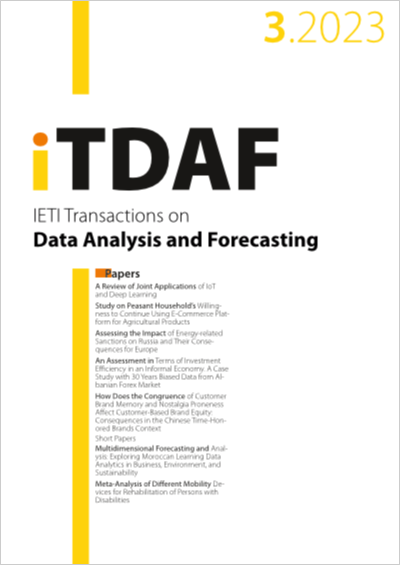An Assessment in Terms of Investment Efficiency in an Informal Economy. A Case Study with 30 Years Biased Data from Albanian Forex Market
DOI:
https://doi.org/10.3991/itdaf.v1i3.40193Keywords:
forex, portfolio efficiency, informal economy, Albanian financial data, risk-rewardAbstract
While observing the charts of the foreign exchange market in Albania, it is evident that the market in Albania is less dynamic than the market in the region. The financial system in Albania needs more information to build strategies, for there is a lack of financial transparency. It is a controlled financial system to a certain extent. Most banks contribute to the market, as do financial companies, individual speculators, and import-export companies. By examining these charts, one can discern the fractal and repetitive patterns within the behavior of the financial market. Empirical evidence indicates a notable interdependence and correlation between price movements. This paper empirically explores the possibilities of investing with an efficient risk-return ratio using the data from the Bank of Albania. This analysis presents an approach to portfolio theory while working with biased data in an informal economy. It addresses the question of which asset investments are efficient for the informal economy in Albania over a span of 30 years. The analysis encompasses nine different assets are considered for the analysis: USDALL, GBPALL, CHFALL, EURALL, XAUALL, XAGALL, JPYALL, AUDALL, and CADALL.
Downloads
Published
2023-11-14
How to Cite
Lamani, L. (2023). An Assessment in Terms of Investment Efficiency in an Informal Economy. A Case Study with 30 Years Biased Data from Albanian Forex Market. IETI Transactions on Data Analysis and Forecasting (iTDAF), 1(3), pp. 46–60. https://doi.org/10.3991/itdaf.v1i3.40193
Issue
Section
Papers
License
Copyright (c) 2023 Lui

This work is licensed under a Creative Commons Attribution 4.0 International License.


